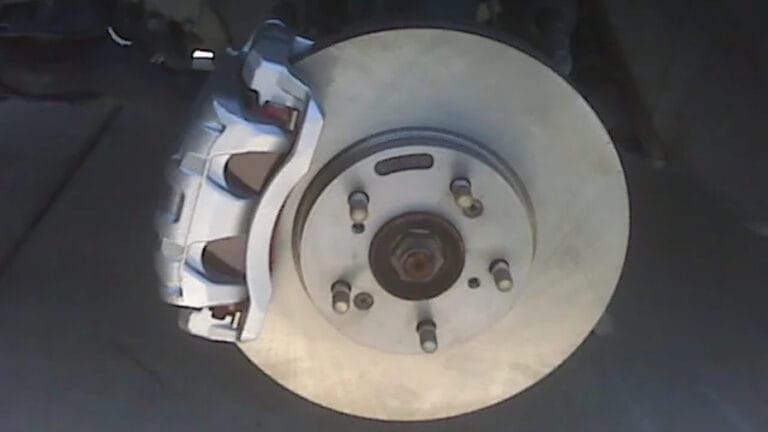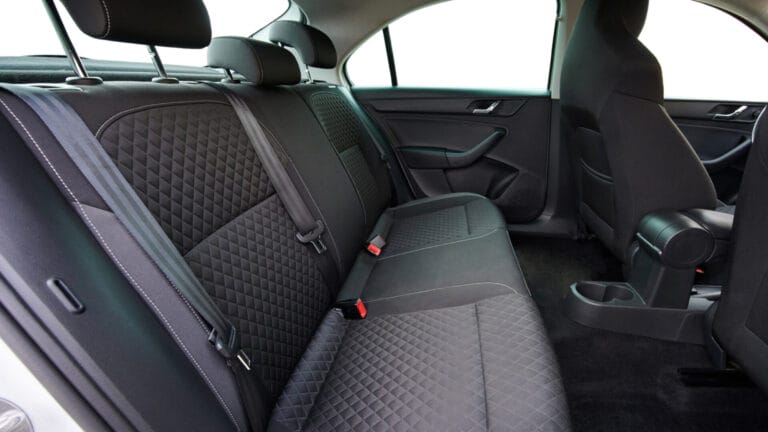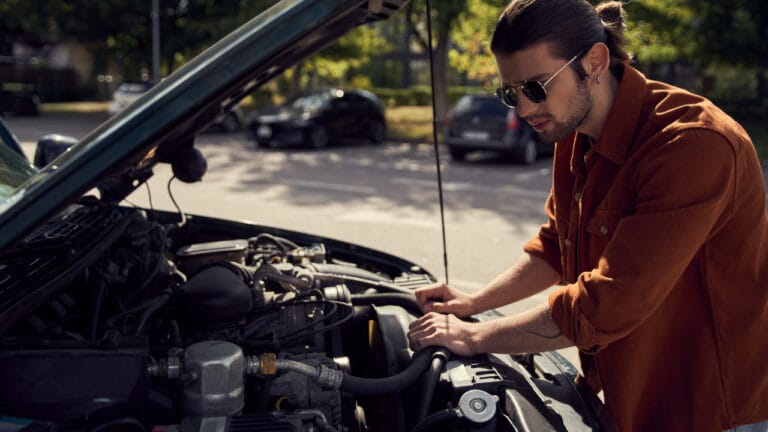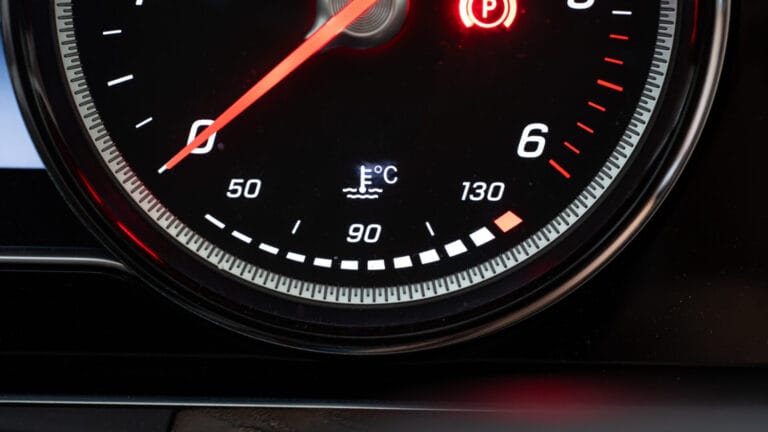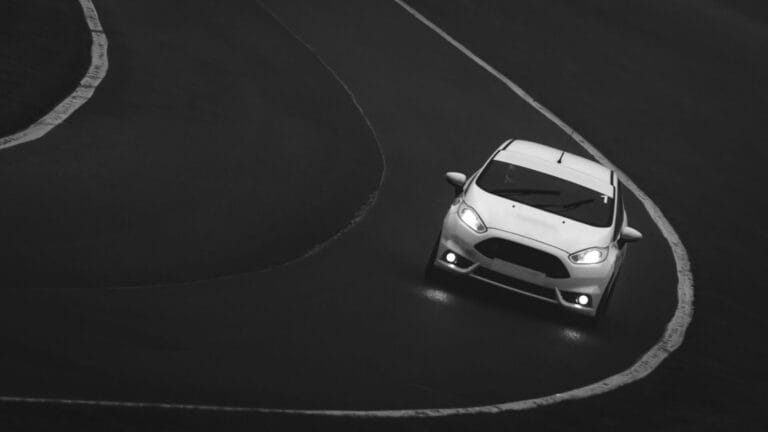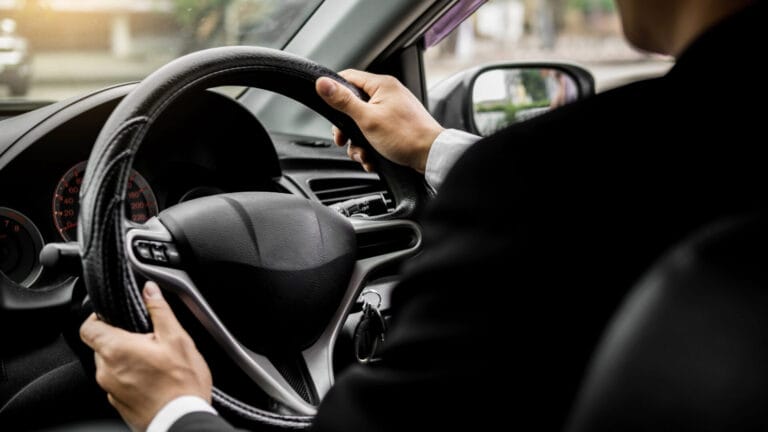Car Makes Noise When Starting Then Goes Away: 7 Reasons & Fixes!
Multiple systems engage at the same time when you start a car. This can make a normal sound, but excessive noise is an issue. Also, if the noise goes away after starting the car, you can suspect some common reasons.
So, why does a car makes noise when starting then goes away?
A car can make a noise if the starter motor or flywheel gears are worn. Angled or worn pistons can also cause noise while starting the car. Other reasons include faulty valve lifters, dirty fuel injectors, worn drive belts or bearings, etc.
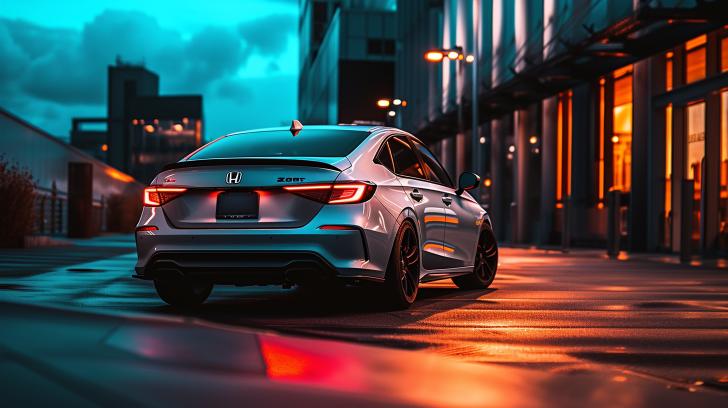
I will take you through all of these reasons to provide symptoms and solutions. Read till the end.
Car Makes Noise When Starting Then Goes Away: A Complete Breakdown
If the noise in your car during a startup isn’t persistent, it can happen for the following reasons:
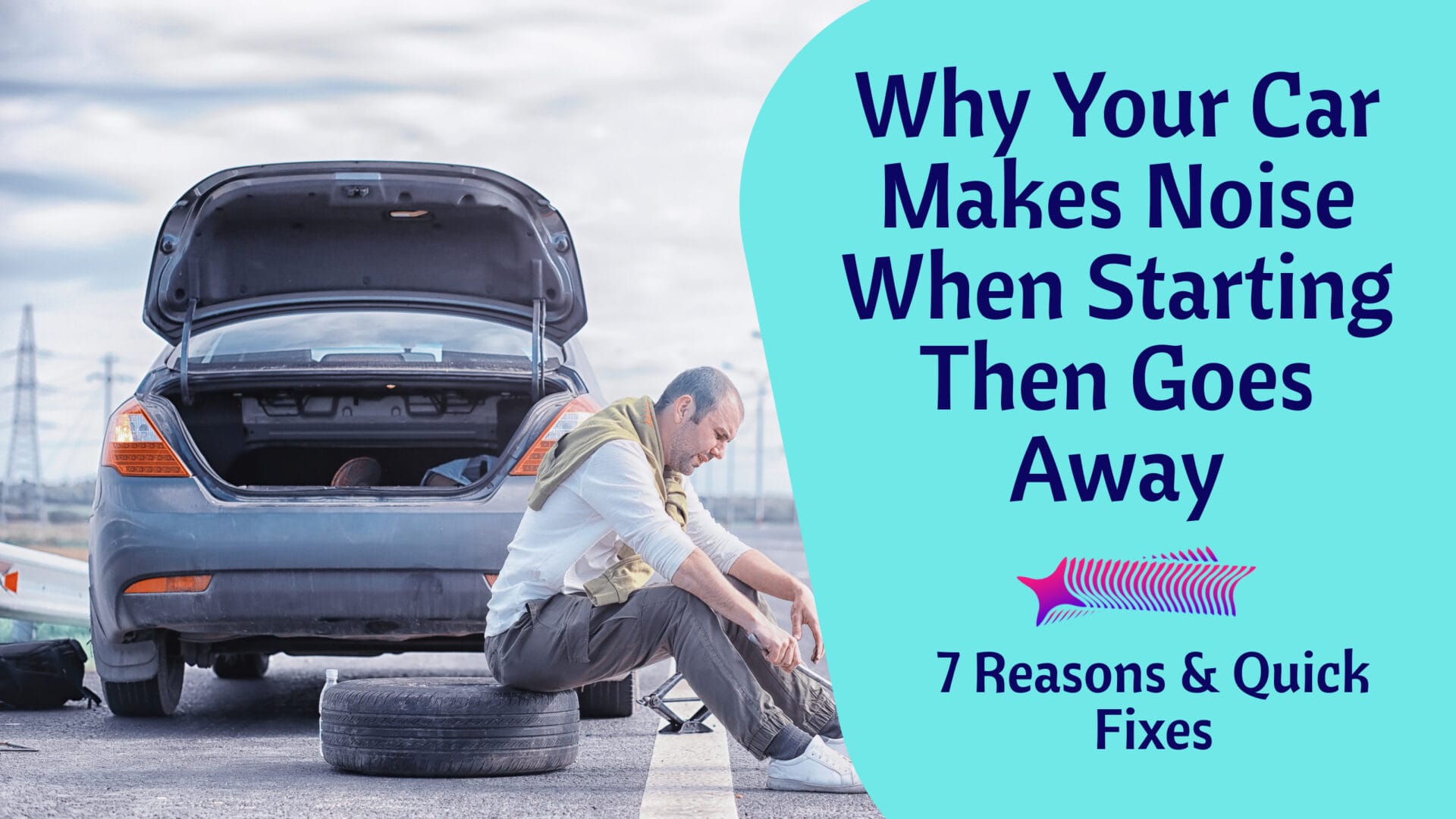
1. The Starter Motor or Flywheel Gear Is Worn
The starter motor is used to turn the engine over. When you turn the ignition on, the starter motor engages to rotate the flywheel. The gear on the starter motor should align with the flywheel precisely.
If the gears on the starter motor or the flywheel are worn, the misalignment causes a noise during the startup. As soon as the engine starts running on its own power, the starter motor retracts. So the noise goes away.
Symptoms
- You will hear a grinding or whirring noise just after turning the ignition on. This noise can be very brief.
Solutions
- You have to take the car to a repair shop so the mechanic can expose the starter motor and the flywheel. Get the gears on the starter motor and the flywheel checked for signs of wear.
- If the starter motor gear is worn, get it repaired or replaced. It might cost about $200–$300.
- Worn flywheel gears can also be repaired by welding new material into the gear.
2. Angled or Worn Pistons
A common cause behind the startup noise is a piston slap. Pistons in your engine are expected to be straight and precisely fit into the cylinder. If the clearance between the piston and the cylinder is higher than the specifications, the piston can be angled.
It mostly happens during the startup because the piston has the lowest dimensions at that time. The angled piston hits the cylinder wall instead of moving straight. This causes a noise when starting the car.
Once the car starts, the piston expands due to heat, and the clearance gets covered. So, the noise goes away after starting the car.
Symptoms
- In the initial moments of startup, you will hear a thumping or thudding noise from the engine. The noise will gradually vanish as the pistons get hotter.
Solutions
- Contact an experienced mechanic to check the condition and alignment of the pistons. Get the alignment of the piston fixed.
- For worn pistons, you have to consider an engine rebuild. It might cost about $3,000-$4,000.
3. Valve Lifters Are Jammed
Valve lifters open the engine valves in a timely manner so that the right amount of air can enter the engine. During a cold start, the lifters can stick to the housing and not move promptly. Grime from continuous use makes them stuck. This will prevent the air from getting into the engine.
As a result, the engine will make noise while starting. Once the lifter slowly moves the valves and the engine starts to get air, the lifter will run normally. So, the noise during the startup will go away.
Symptoms
- The engine can misfire a few times if the valve lifter is stuck. A sputtering noise will come from the engine.
Solutions
You have to take the car to a repair shop to get the valve lifters cleaned. Get the accumulated grime removed from the lifters.
4. Worn Crankshaft Bearing
The crankshaft bearing transforms the linear motion of the pistons into rotational motion. If the bearing is worn, it will cause a noise during a cold start. Once the component gets hotter and the engine oil smooths the motion, the noise will go away.
Symptoms
- You will get a continuous grinding noise during the startup. The noise might remain for a few seconds after the startup.
Solutions
The crankshaft bearing inspection requires disassembling the engine. You must take the car to an auto shop to get the bearing checked.
If the bearing is worn, you must replace it. The replacement will cost about $200–$300, including parts and labor.
5. Worn Drive Belt
Drive belts in the engine are usually made of rubber. The material deteriorates over time. When the engine is cold, the drive belts can be stiffer. During the startup, worn drive belts will cause a noise.
Once the belts are in motion, they will heat up and become a bit more flexible. So, the noise will be gone after a few minutes of the startup.
Symptoms
- The noise from the drive belts resembles that of a whirring noise from misaligned belts. Squealing noises can also occur.
Solutions
- Turn the car off and open the hood. Check the drive belt visually for signs of wear or misalignment.
- If the drive belt is misaligned, you can align it using a flat-head screwdriver. Pry the belt in place.
- If the belt is worn, you should replace the drive belt. Remove the old drive belt from the pulley. Then, put a new drive belt over the pulley. Use a flat-head screwdriver to install the drive belt.
See this video to get a visual reference:
6. Faulty Drain Back Valve
Once the engine oil passes the filter, the drain-back valve prevents it from going backward. So, the engine components get lubricated properly. If the drain back valve is partially open in the reverse direction, the engine oil might not reach the engine components easily.
For the first few moments of the startup, the car will make a noise. Once the engine oil gets into all the components, the noise will go away.
Symptoms
- You will hear a metal grinding noise from the engine, along with a rattling noise if the drain back valve is faulty.
Solutions
- Get the drain back valve checked by an experienced mechanic.
- If it is stuck open due to grime, clean the valve and use it again.
- Replace it if the valve is damaged or broken.
7. Dirty Fuel Injectors
Fuel injectors need to spray the right amount of fuel into the engine for combustion. If the nozzles are dirty, they might fail to deliver enough fuel. As a result, the engine will misfire and make a noise during the startup.
Once the engine gets enough fuel and is already in motion, the noise will go away.
Symptoms
- You will hear a knocking sound from the engine if the fuel injectors are dirty.
Solution
- Remove the fuel injectors from the engine.
- Then, clean them with an injector cleaning kit.
- Assemble the injectors after cleaning, and the startup noise should be gone.
Prevention of Noise When Starting Your Car
Take the following tips from me to avoid the noise when starting the car.
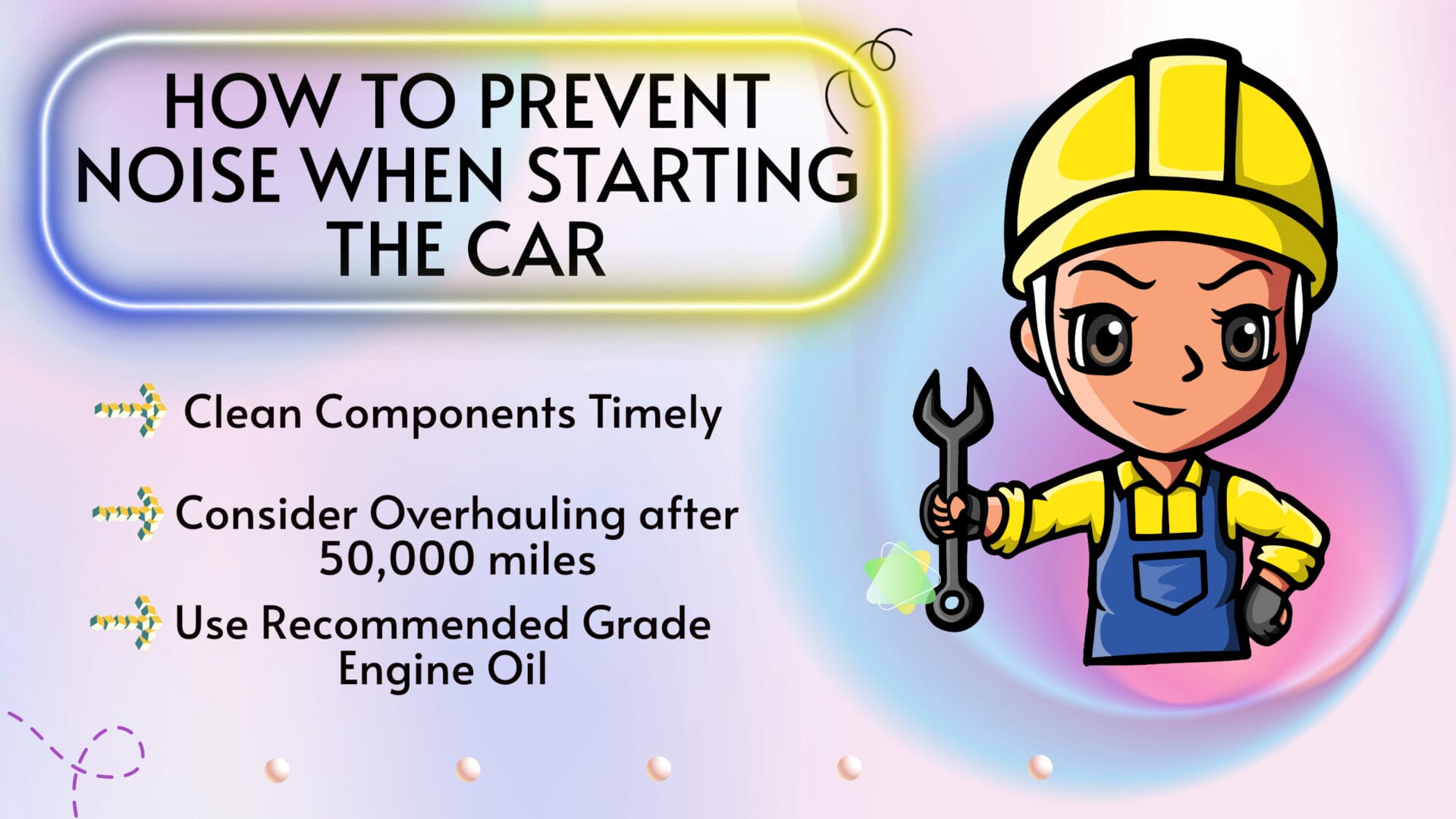
- Fix a schedule for cleaning components like spark plugs, fuel injectors, filters, etc.
- When the engine has a mileage of more than 50,000 miles, you should consider a major overhaul.
- Use the recommended grade of engine oil to prevent engine noise while starting.
FAQs
You will find these answers to some commonly asked questions useful in diagnosing the startup noise problem.
What if my car makes different noises during the startup?
If multiple noises occur during a single startup, it indicates more than one of the above reasons is present.
Is it normal for cars to make noise during a cold start and then go away?
No, it isn’t normal for cars to make a noise during a cold start. If the car hasn’t been started in a long time, there can be a noise during the start-up.
Is the engine oil responsible for car noise that goes away later?
It can be. If the engine oil has a high viscosity in cold temperatures, the lack of lubrication during the startup can cause a noise.
Closing Word
You might not pay attention to a noise that only occurs during the startup and goes away later. Even if things look normal, you should diagnose the reason behind the initial noise. The reasons for car noise while starting include worn starter motor or flywheel gear, angled pistons, stuck valve lifters, worn crankshaft bearings, etc.
Worn drive belts, dirty fuel injectors, and faulty drain back valves can also cause this issue. Take the necessary steps discussed here to eliminate this annoying noise and make sure the car doesn’t face any grave consequences.

